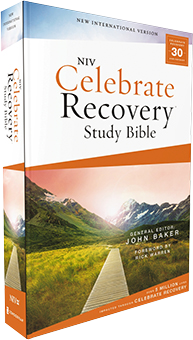
Martha the People Pleaser
As Jesus and his disciples were on their way, he came to a village where a woman named Martha opened her home to him. She had a sister called Mary, who sat at the Lord’s feet listening to what he said. But Martha was distracted by all the preparations that had to be made. She came to him and asked, “Lord, don’t you care that my sister has left me to do the work by myself? Tell her to help me!”
“Martha, Martha,” the Lord answered, “you are worried and upset about many things, but few things are needed — or indeed only one. Mary has chosen what is better, and it will not be taken away from her.” Luke 10:38-42
Like so many today, Martha was busy in the Lord’s service but still spiritually barren. She worked hard at caring for others. She was hospitable, welcoming Jesus and his band into her home. Jesus took the opportunity to offer spiritual food as Martha toiled in the kitchen, her sights fixed on the perfect meal. Her first recorded words accuse Jesus of not caring about her or about her sister’s laziness. Hostility had replaced hospitality. She called Jesus “Lord” and in the very next breath insulted him (see Luke 10:40).
Martha was a people-pleaser. Her self-identity revolved around entertaining—and perhaps impressing—those who entered her household. Her performance had become more significant to her than her personal relationship with, or even her respect for, her Lord. Pain, compulsions and addictions can blind us to the “crazy” contradictions between our beliefs and our behavior.
Mary wasn’t lazy. She was tuned in to Jesus, and the Lord pointed this out to Martha. Martha’s compulsions (see Luke 10:41) were keeping her from the worship Mary was enjoying at the Master’s feet (see Luke 10:39, 42). For Martha, the good had crowded out the best. Martha was worried about temporal, passing things, while Mary was locked into the eternal. Jesus is forever. Our relationship with him is forever. His Word is forever (see 1 Peter 1:23 – 25).
We all can benefit from the same shift in focus—off circumstances and our past and onto Jesus. We’re not asked to ignore our pain. Instead, we’re called to face it and to allow Christ to remove it. Jesus helped Martha confront her weaknesses. She was “worried and upset about many things” (Luke 10:41). That describes many people today — maybe even a majority of people in today’s world. Jesus knew that Martha had desires. But what we want isn’t worth getting upset about. What matters is what we need: an intimate relationship with Jesus. We need to find our place at his feet, taking directions from him. That’s a life, a peace, that “will not be taken away” (Luke 10:42).
Jesus confronted Martha’s nonproductive habits and emotions and pointed her in a new direction. She changed. She grew in her knowledge and love of Jesus. In fact, Martha was one of the very few who confessed, prior to his resurrection, Jesus as “the Son of God” (John 11:2712:1 – 2), but no longer out of worry. She was free from the pressure to perform for the purpose of pleasing others. In times of busyness, may we also be tuned in to Jesus and fruitful rather than barren.
Edited from the Character Study of Martha in the NIV Celebrate Recovery Study Bible.

NIV Celebrate Recovery Study Bible
The NIV Celebrate Recovery Study Bible contains the complete text of the NIV with hundreds of notes and study features that connect Scripture to eight recovery principles from the Celebrate Recovery program developed by John Baker and Rick Warren. Includes articles, recovery stories, biblical character studies and more.
Learn More






Awesome inspiration! You have broken the pride in me and enlightened my heart to total obedience.